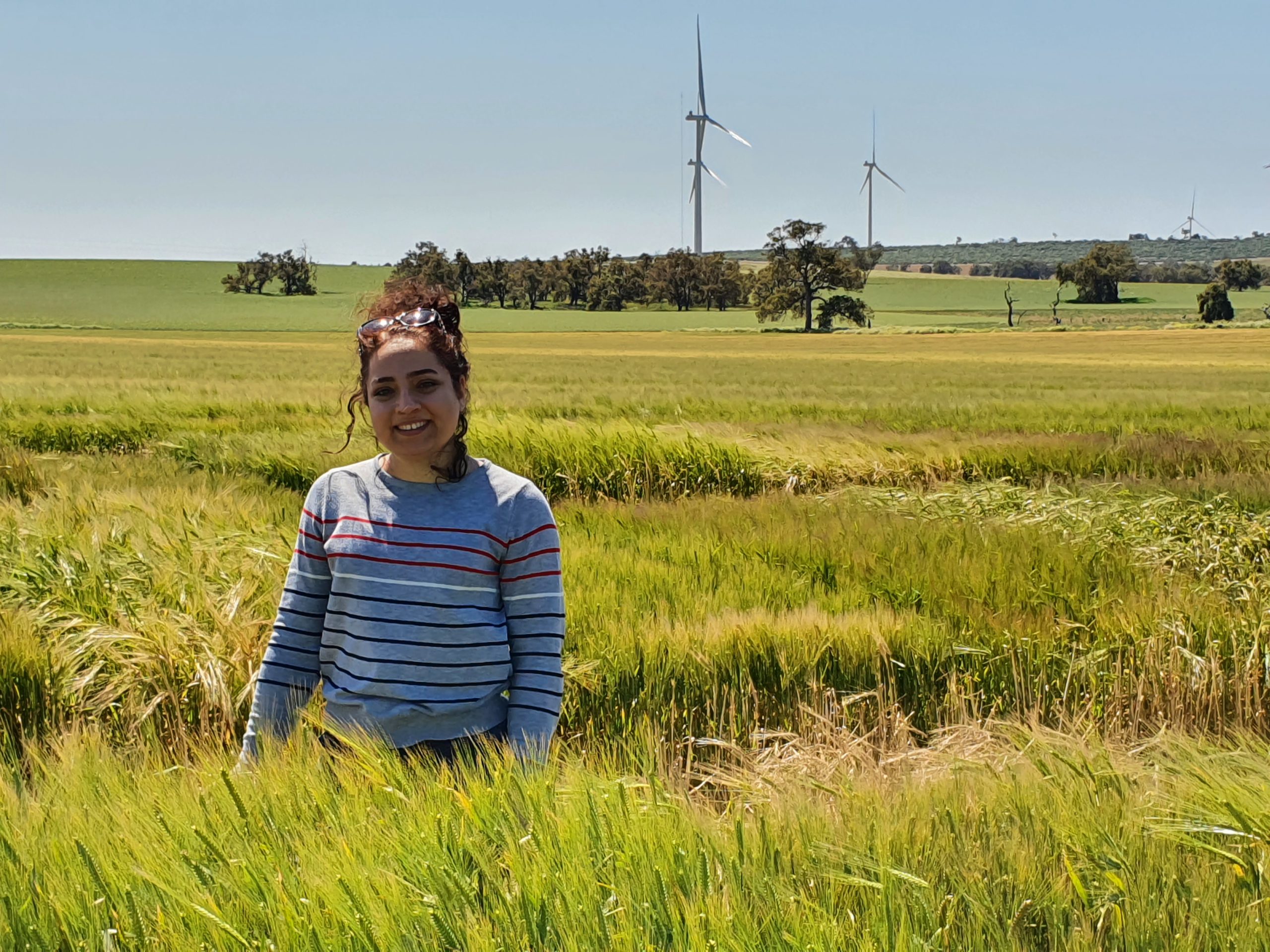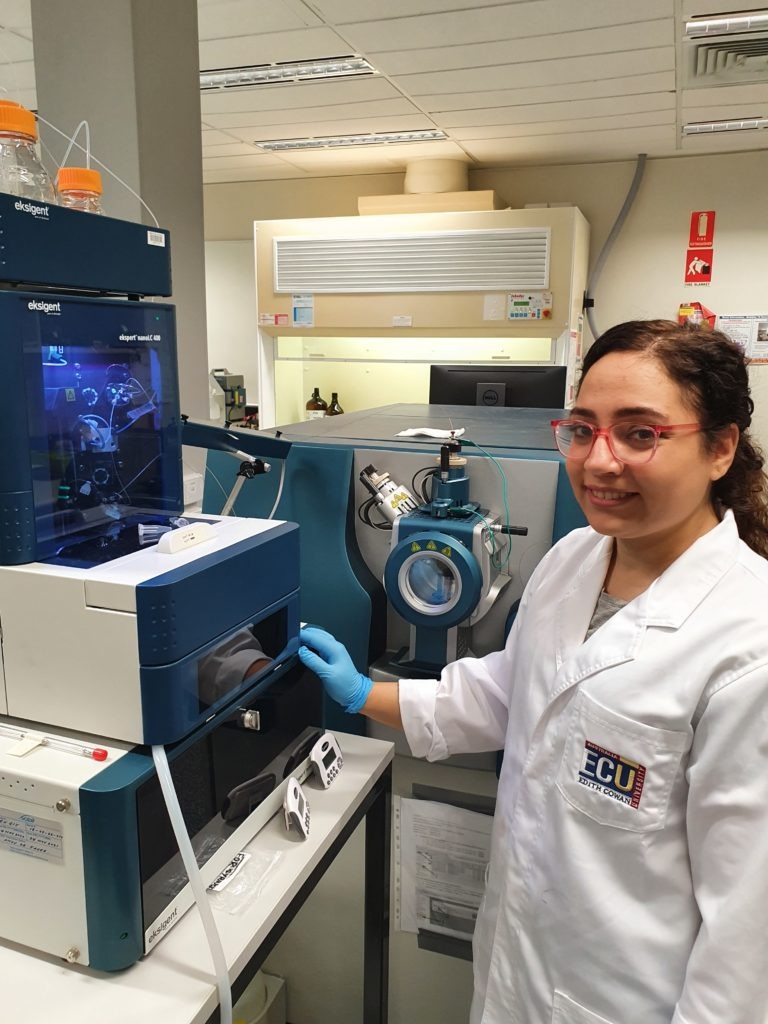

All in a PhD’s work – exploring the role of proteins for food security and better beer
June 15, 2022

We have no doubt that involving young Australians in international agriculture and agriculture for development has meaningful and beneficial outcomes for food and nutrition security, for the students and for Australian agriculture. This is again the focus of our awareness raising in the third year of our ACIAR supported NextGen project.
This year we will hear from NextGen’rs who are involved in the work that has been highlighted in our seven teacher modules for secondary students around Australia.
Our fourth blog in our NextGen series is from Mahya Bahmani, a PhD student at Edith Cowan University in WA. Mahya has a background in agricultural biotechnology. While her PhD research project is focusing on the proteins in Australian barley varieties that are related to malt and beer, the advanced technology she is using is also important to food security. Also, barley is cultivated in both highly productive agricultural systems but also in marginal and subsistence environments. It is of significant economic importance for animal feed as well as beer production. Her blog focuses on our teaching module Australia – A Powerhouse of Agricultural Research.
 Proteins are large biomolecules that are made up of amino acids. These macromolecules play various functions in living organisms from acting as the building blocks for muscle growth, the signalling molecules for appetite control to precisely controlling physiological reactions. There have been different techniques used to investigate the proteins that control these critical biological functions, both in human and animal studies, but also applied to agriculture and food.
Proteins are large biomolecules that are made up of amino acids. These macromolecules play various functions in living organisms from acting as the building blocks for muscle growth, the signalling molecules for appetite control to precisely controlling physiological reactions. There have been different techniques used to investigate the proteins that control these critical biological functions, both in human and animal studies, but also applied to agriculture and food.
Proteomics is a high throughput approach that is being used to study the presence and quantity of proteins and often uses specialised equipment such as mass spectrometers. Proteomics has been deployed to study agricultural commodities including crops which are the raw material base of human foods.
Barley is the fourth most cereal being produced globally with various applications most importantly in malting and brewing. This crop is the second largest produced cereal in Australia, and it plays an important role in global food security. Proteomics is being used by scientists to explore the fundamental biology including the impact of genetics, environment and crop management and by plant breeders to improve the commercial varieties and deliver high-quality products.
Using mass spectrometry-based proteomics, I am investigating the proteins in different barley varieties to understand how different growing environments impact the quality of barley and its corresponding malt. Using high tech equipment, I am seeking out the proteins that are linked to malt quality. Results obtained will inform barley agricultural programs to consider the impact of different growing environment in barley breeding to meet the challenge of global climate changes and safeguarding food security. I hope my findings will enable farmers to ensure stability of quality of their products regardless of growing location.
I am also using this technique to investigate the proteins in an ultra-low-gluten barley variety, called Kebari, to evaluate the changes of gluten during malting procedure. By studying key proteins linked to barley and malt quality and monitoring their changes during processing, we can enrich the present knowledge of barley malting. My research aims to shed light on the protein biochemistry in ultra-low-gluten barley, and how this impacts malt and beer production, with the aim of improving products quality for those people who suffer from gluten intolerance.
This technology has been used by Professor Michelle Colgrave and her team to support agriculture and food. For example, they have made a canola variety that produces omega 3 oil through genetic modification (GM), which could provide healthy oils in a more sustainable way. Moreover, Professor Colgrave and her colleagues used Mass spectrometry-based proteomics in food safety to ensure correct labelling of gluten-free products on packages for people with gluten intolerant sensitivities.
Application of high technology such as mass spectrometry-based proteomics has a great importance in improving global agricultural production including barley by improving cereal crops such as barley to be less affected by environmental impact in both developing and developed countries. This technique is a valuable tool to properly identify and quantify even very low levels of proteins that cause gluten intolerant sensitivities, and these findings can be used along with genomics, transcriptomics and metabolomics research to improve flavour or nutrition quality of barley and its related products such malt and beer.




 0
0